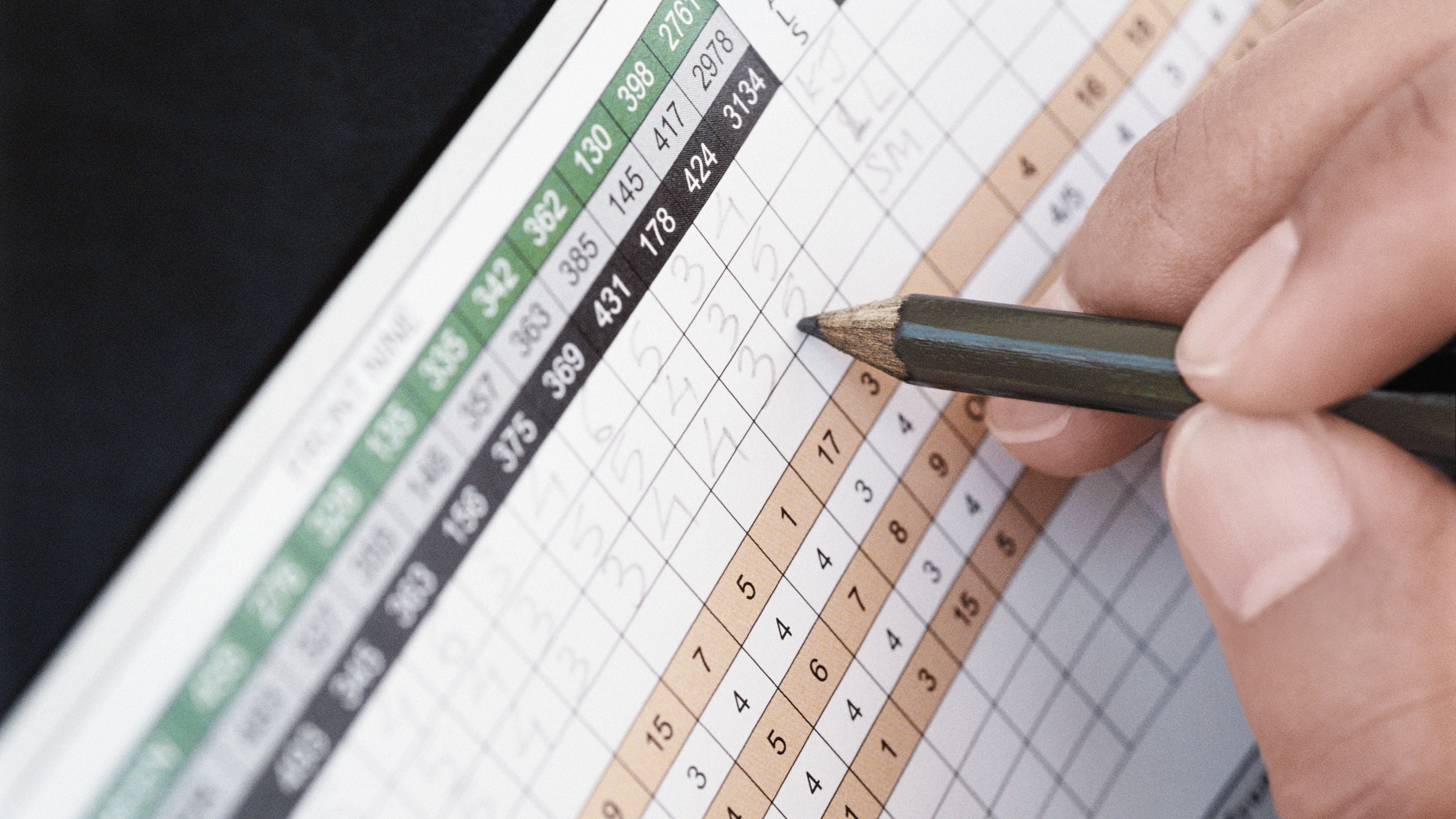What Is PCC In Golf?
The acronym is an important element of the World Handicap System but what does PCC stand for, and what is it all about?


Subscribe to the Golf Monthly newsletter to stay up to date with all the latest tour news, equipment news, reviews, head-to-heads and buyer’s guides from our team of experienced experts.
You are now subscribed
Your newsletter sign-up was successful
Want to add more newsletters?

Delivered daily
Daily Newsletter
Sign up for all the latest tour news, gear reviews, head-to-heads and buyer’s guides plus features, tips from our top 50 coaches and rules advice from our expert team.

Once a week
Kick Point
Sign up to our free Kick Point newsletter, filled with the latest gear reviews and expert advice as well as the best deals we spot each week.

Once a week
Women's Golf Edit
Sign up to our free newsletter, filled with news, features, tips and best buys surrounding the world of women’s golf. If you’re a female golfer, you won’t want to miss out!
PCC is a feature of the World Handicap System (WHS).
It stands for Playing Conditions Calculation. PCC automatically takes place at the end of each day to determine if scores made at a course are significantly lower or higher than expected, suggesting playing condition were either easier or harder than normal.
If scores were unusually low or high, then a PCC adjustment of between -1 and +3 shots will be applied to the score differential calculation.
Basically, the idea is that if the conditions are really tough then scoring is going to be higher and if it’s easy, scoring should be lower; the PCC should kick in to reflect this. For PCC to be calculated and be applied, no fewer than eight acceptable scores must be submitted on the day by players with a Handicap Index of 36.0 or below.
PCC is a replacement for the old Competition Standard Scratch (CSS) which reflected playing conditions under the old handicap system.
Is there only one PCC each day?
It's recommended in the Rules on Handicapping that only one PCC is performed each day for each course. But it’s acknowledged there may be circumstances that warrant a separate PCC to be performed for part of the day or for a certain competition.
For example, when: There is extreme variation in weather on the day.
Subscribe to the Golf Monthly newsletter to stay up to date with all the latest tour news, equipment news, reviews, head-to-heads and buyer’s guides from our team of experienced experts.
Or, the make-up of the field in a competition being played on the day is significantly different from the make-up of the players participating in General Play rounds on the same day.
Is PCC too conservative?

The new PCC mechanism was deliberately designed to be conservative, only to trigger an adjustment when the scores returned on the day demonstrate that the playing conditions are truly ‘abnormal.’
The PCC will not be triggered due to the poor performance of a small number of players in the field. In order for the PCC to trigger an adjustment, a significant percentage of players must return scores which are higher or lower than their expected scoring range.
Under WHS, there may be more days when conditions are seemingly challenging that PCC does not kick in. For this reason, PCC is one of the elements of WHS that is being looked at and may be overhauled.
There is a view that the mechanism is too conservative, particularly for golf in countries with volatile weather – such as the UK and Ireland. Data from England Golf showed that PCC remained zero around 92% of the time – a % considered far too high.
The challenge for WHS is to find a level for PCC, a single calculation, that is more reflective of the conditions that players face and is realistic and reasonable around the golfing globe.

Fergus is Golf Monthly's resident expert on the history of the game and has written extensively on that subject. He has also worked with Golf Monthly to produce a podcast series. Called 18 Majors: The Golf History Show it offers new and in-depth perspectives on some of the most important moments in golf's long history. You can find all the details about it here.
He is a golf obsessive and 1-handicapper. Growing up in the North East of Scotland, golf runs through his veins and his passion for the sport was bolstered during his time at St Andrews university studying history. He went on to earn a post graduate diploma from the London School of Journalism. Fergus has worked for Golf Monthly since 2004 and has written two books on the game; "Great Golf Debates" together with Jezz Ellwood of Golf Monthly and the history section of "The Ultimate Golf Book" together with Neil Tappin , also of Golf Monthly.
Fergus once shanked a ball from just over Granny Clark's Wynd on the 18th of the Old Course that struck the St Andrews Golf Club and rebounded into the Valley of Sin, from where he saved par. Who says there's no golfing god?